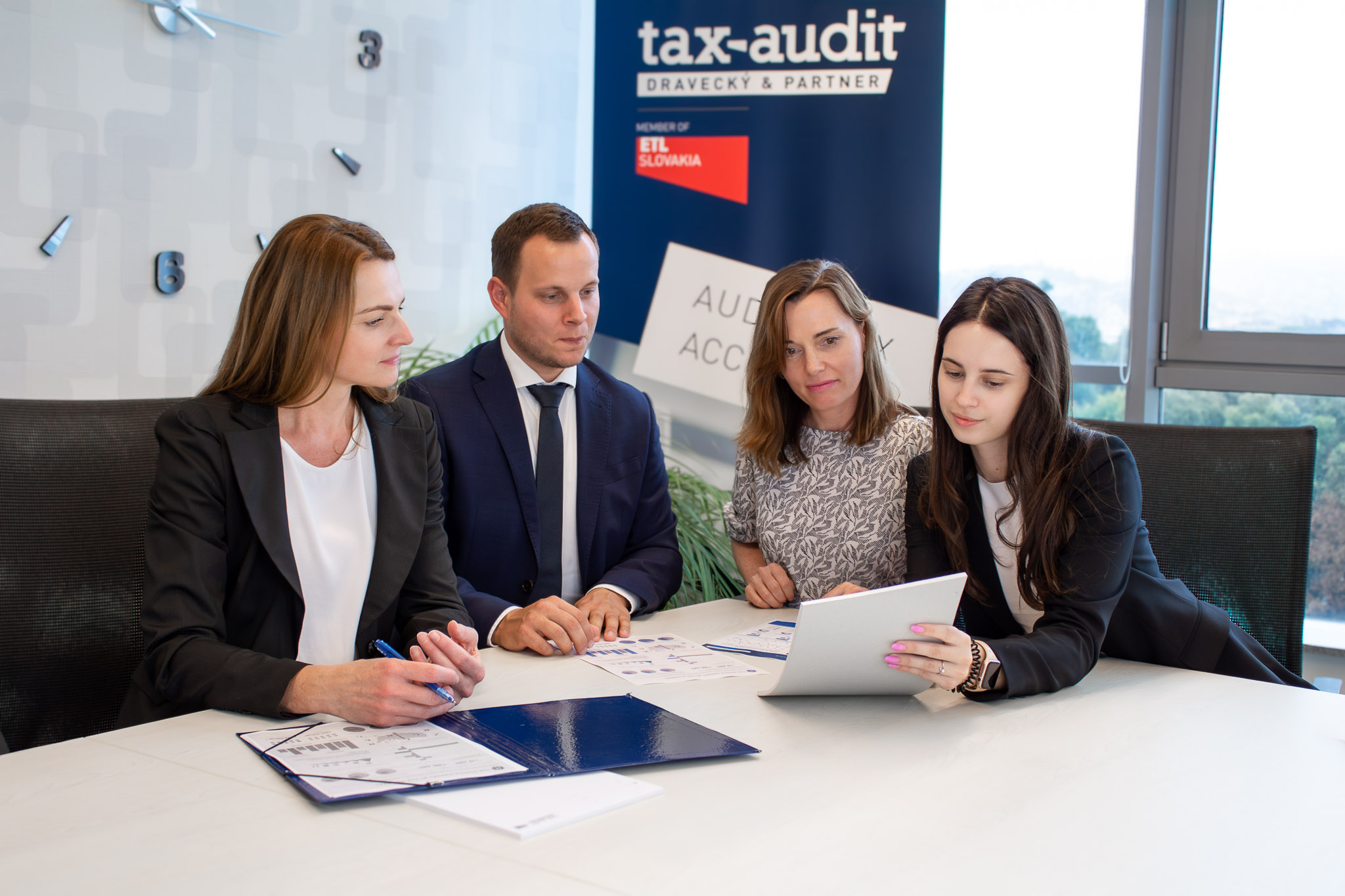The sale of a business share or stock can represent a significant financial income for an entrepreneur, but it can also result in a high tax burden. However, Slovak legislation provides a solution for avoiding taxation of this income if the legal conditions are met. This is a tax exemption under Section 13c of the Income Tax Act.
In this article, we will look at when and under what circumstances the income from the sale of a share can be tax-exempt, what obligations you must meet, and what you need to prepare to prove that the conditions have been met.
Who can benefit from the exemption?
The exemption is intended for:
- shareholders of joint-stock companies,
- shareholders of simple joint-stock companies (for ordinary or special shares),
- partners in a limited liability company (s.r.o.),
- limited partners of limited partnerships,
- similar foreign companies.
It does not apply to entities that trade in securities as part of their business activities.
Conditions for exemption
- Direct share of at least 10%: The taxpayer must own at least 10% of the company's registered capital directly – not through another company.
- Minimum holding period (24 months): The share must be held continuously for at least 24 months. This means that the tax exemption can only be applied if the sale takes place after two years have passed since the acquisition of the share.
- Genuine economic activity and accounting: The company selling the share must actually carry out economic activity in the Slovak Republic, not just formally hold securities. This requires:
- performing substantial functions related to the ownership of the share (participation in management, decision-making at the general meeting, approval of budgets and business plans),
- managing and bearing the risks associated with the ownership of the share,
- adequate human and material resources,
- maintaining double-entry bookkeeping or IFRS.
The aim of Section 13c of the Income Tax Act is to ensure that the benefits of the exemption are only available to taxpayers who are actively involved in the management and activities of the company. The law thus prevents the single-purpose establishment of "shell" companies intended solely to obtain tax relief.
Other important notices
When applying the exemption under Section 13c, several additional rules must also be taken into account:
- The company must have real substance: The holding company cannot be just a formal "shell". It is necessary to prove that its structure was created for legitimate economic reasons and not solely to avoid tax liability. We therefore recommend preparing documentation that explains the purpose and reasons for establishing the holding or corporate structure.
- The company must not be in crisis: The exemption cannot be applied if the company is in liquidation, bankruptcy, or restructuring.
- Compliance with the arm's length principle: Relationships between related parties must be set up as if they were transactions between independent entities. This applies in particular to the prices and conditions of commercial or financial transactions.
- Burden of proof: The taxpayer must be prepared to prove that the conditions have been met with written evidence.
The exemption of income from the sale of a business share or stocks through a holding company under Section 13c of the Income Tax Act represents a significant tax advantage, but at the same time places high demands on meeting legislative conditions and demonstrating real business activity.
A properly set up holding structure can bring not only tax savings but also better asset protection, flexibility in business management, and long-term stability. We therefore recommend that every step be carefully consulted with experts, as the difference between the successful application of the exemption and its rejection can have a major impact on the final tax liability.
Be the first to know about the latest information from the world of taxation, accounting and auditing.













































